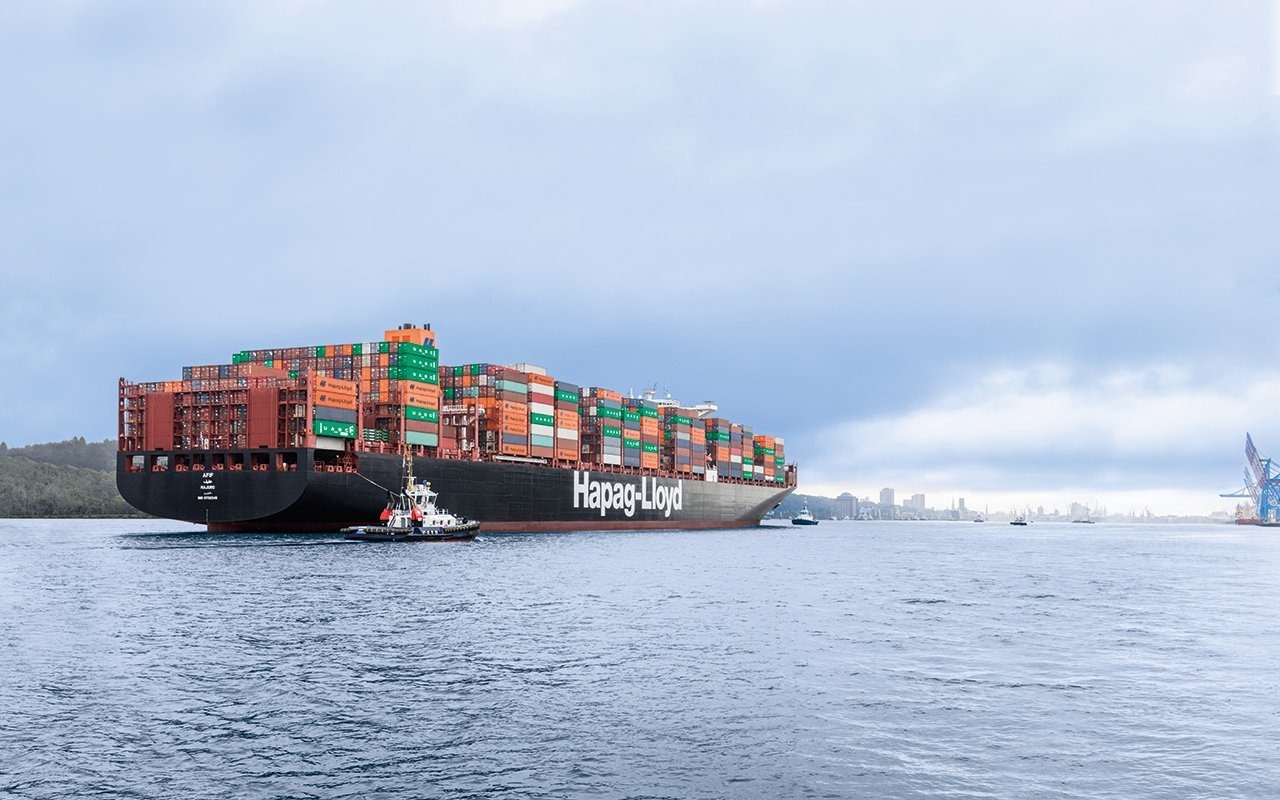.png?width=730&height=395&name=visuels-rs-market-insights-2%20(1).png)
The Air France-KLM Group and CMA CGM have announced the signing of a "long-term strategic partnership" in air cargo that is expected to come into effect in January 2023. A decisive alliance to secure a place on the world stage.
Expertise, network, fresh funds. This trio is at the heart of the "strategic partnership" agreement that has just been signed by the Air France-KLM group and the shipping company CMA CGM, "for an initial period of 10 years". While the global logistics landscape is undergoing a full recomposition, especially under the impetus of the major container shipping companies, the alliance of these two players should allow them to compete with the world leaders, in a sector where the minimum investment is high.
The integration strategy of CMA CGM
Like other global maritime leaders, CMA CGM has embarked on a strategy to expand its business to other segments of the supply chain, starting with freight forwarding. The challenge was not an easy one. In 2004, the group acquired a stake in the capital of the French SME Qualitair, which it incorporated into its own logistics structure CCLog. But the graft did not take and the adventure came to an end in 2007. Fifteen years later, CMA CGM attacked a much larger but ailing target: Ceva Logistics. The project was such that many observers wondered what the shipping company was doing getting mixed up in such a hornet's nest... However, the recovery is taking place, at the cost of a drastic restructuring plan, and with the unexpected help of a pandemic that has caused transport prices that have been sluggish for two decades to suddenly soar...
This influx of fresh funds makes it possible, above all, to awaken much broader ambitions. CMA CGM tackles three major challenges: deleveraging, greening, and the diversification of its activities. Accordingly, the group continues its acquisitions in freight forwarding. On April 8, it bought up almost all of Gefco's capital. But its acquisition policy goes further: it aims to cover segments in which the group was not present, in order to make CMA CGM a world leader in the supply chain. Their counterpart and competitor Maersk is also rigorously on the same wavelength.
- Expansion of logistical activities
Last January, CMA CGM announced the signature of a promise to acquire Private Package, a specialist in parcel delivery to homes and to parcel pickup points. "The acquisition of a majority stake in Colis Privé is an important step in the development strategy of our logistics activities. This operation will enable us to offer end-to-end logistics solutions to our e-commerce customers for whom the last mile is a critical stage. By leveraging the global presence of our subsidiary CEVA Logistics, our ambition is to develop Colis Privé internationally, starting with Europe where the company is already established", commented Rodolphe Saadé, CEO of CMA CGM. This acquisition is all the more strategic as cross-border e-commerce, in particular between China and Europe, is in full development, and its logistical dispositions are undergoing major changes. The reconfiguration of the e-commerce supply chain will undoubtedly make it possible to make more room for maritime transport, to feed the specialised logistics hubs which will be located as close as possible to the consumer markets. But e-commerce remains inseparable from air freight transport. It is therefore now becoming essential to master air assets if one wishes to claim to play a leading role in the global supply chain.
- Investment in air transport
In recent years, it is the large e-commerce platforms such as Amazon or Alibaba that have led the way and invested in the field of transport and logistics through direct investments or partnerships, in the face of financially impotent providers. The profits accumulated by shipping companies now allow them to get back in the race. After launching its own airline a little over a year ago, CMA CGM is accelerating its air freight operations by signing this strategic partnership with Air France-KLM. It is expected to enter into force in January 2023, subject to the approval of the relevant regulators.
Building on complementary know-how
For the Air France-KLM group, this partnership offers the opportunity to regain a significant place in the operation of all-cargo aircraft. During the decade 2010-2020, the group had to reduce its fleet of aircraft of this type by two thirds in order to try to stem the colossal losses of air cargo activity, then essentially relying on the marketing of passenger aircraft belly cargo. But to exist in a European and global context, reinvestment is essential. As for CMA CGM, it acquires an air network that is out of all proportion to what it could hope to develop with its own resources. "This strategic partnership allows us to significantly accelerate the development of our air division, CMA CGM Air Cargo, which was created just over a year ago, and to position our two companies among the world's leading players in air freight," stresses Rodolphe Saadé in the press release unveiling the merger between the two companies.
CMA CGM had launched its own airline in February 2021. But the air cargo sector is a sensitive market for several reasons:
- Heavy investments
In November 2021, CMA CGM ordered four A350Fs, the new all-cargo aircraft from Airbus, for a list price of nearly €1 billion. It is to be expected that the negotiations have reduced the bill, but it is clear that the minimum investment needed to enter the air freight market is high. - Fluctuating profitability
The pandemic has given a new shot in the arm to air cargo rates over the past two years. But it is an extremely cyclical industry, very sensitive to the vagaries of the global economy of which it is often an early barometer. - An exacting technical and legal framework
Operating aircraft and operating in an airport context implies technical skill and compliance with safety and security rules, for example. In addition, the development of air transport services is governed by a very specific system of traffic rights.
The merger between CMA CGM and Air France-KLM therefore makes perfect sense here. By joining forces, the two partners will be able to conquer a market where critical size is an essential element in controlling operating costs. The partnership is very far-reaching. Air France-KLM and CMA CGM will jointly and exclusively operate all of their cargo capacity, namely:
- 4 full-freighter aircraft at CMA CGM Air Cargo (with orders in the pipeline for 8 other aircraft, 2 of which could be operated by Air France-KLM in the future)
- 6 full-freighter aircraft at Air France-KLM based at Paris-Charles de Gaulle Airport and Amsterdam Schiphol Airport (with orders in progress for 4 additional aircraft), operated by Air France, KLM and Martinair.
- The available belly-hold capacity of Air France-KLM passenger aircraft, the marketing of which is also part of the partnership.
Air France-KLM and CMA CGM will jointly define the networks of all-cargo aircraft. Both groups also intend to expand the range of transport products and services offered. For this purpose, apart from general cargo, they will be able to capitalise on the know-how developed by Air France-KLM over several years in certain specific segments such as pharmaceutical products, perishables or express transport. For its part, CMA CGM is committed to "mobilising its extensive commercial network" and "will complement this offer with innovative logistics and multimodal solutions, particularly in maritime and land transport". Its subsidiary Ceva Logistics currently handles about 400,000 tonnes of air freight per year.
By joining forces, both groups can expect synergies in terms of both income and costs. An essential parameter in a sector that is traditionally volatile.
A strong commitment
While the merger of Air France-KLM and CMA CGM is due to its undeniable operational and commercial relevance, it also has a deeper strategic and political dimension. The aim is to consolidate "two global players with European roots". Not only is the partnership planned over a long period of 10 years, but there is also a financial commitment.
CMA CGM plans to become a new reference shareholder of Air France-KLM. This investment is to take place on the occasion of Air France-KLM's capital increase which is to be launched on 24 May 2022. This operation aims to strengthen the group's own funds and balance sheet. While the cargo business is doing well and has returned to profitability, passenger activity remains marked by the Covid-19 pandemic. CMA CGM has committed to subscribe to the operation for a maximum amount of €400 million, within the limit of a maximum holding of 9% of the capital at the end of the transaction. A representative of CMA CGM should join the board of directors of the Air France-KLM Group if the investment is made.
This is not the first time that CMA CGM has flown to the rescue of national operators weakened by the crisis. Last September, the group signed a commercial partnership, also accompanied by a rescue investment agreement, with Brittany Ferries. Similarly, the acquisition of Gefco, the majority of whose capital was held by the Russian railway company RZD, made it possible to guarantee the company's survival, threatened by the European sanctions decided in response to the invasion of Ukraine. CMA CGM, which obtained a loan of EUR 1.05 billion in May 2020, 70% of which is guaranteed by the State, when the outbreak of the Covid-19 pandemic almost paralysed world trade, does not forget the hand that fed it, even if the record profits since then have made it possible to repay this loan in advance. But we note that in each case, an indisputable operational and commercial logic underpins the rescue operation.
Fresh funds will also be welcome at Air France-KLM. "Through our stake in the company, Air France-KLM will be able to count on us to support its future development", stressed Rodolphe Saadé. One can imagine that the French State is very pleased with the emergence of this European and world leader, but also one that is a little bit French too.
Our latest articles
-
Subscriber 3 min 24/02/2026Lire l'article -
Hapag-Lloyd - Zim: a shipping deal with geostrategic implications
Lire l'article -
European road freight: the spot market is stalling
Lire l'article



